There are few foods as demonized and confusing as bread. Especially when it comes to kidney health. White or wheat? Is whole grain better? Read on to get the truth about the best bread for kidney disease.
*Please note that this post contains clearly identified affiliate links. As an Amazon affiliate, I may earn a small commission on qualifying purchases (at no extra cost to you).
Table of Contents
Is Bread Good For Kidney Disease?
In short, yes! Bread and other healthy carbohydrates are an important part of a healthy diet for kidney disease.
You may be thinking “But doesn’t bread have carbs?”. Answer: yes! Bread is a wonderful source of carbohydrate, and this is a GOOD thing!
Carbs have been demonized, perhaps partially due to the “keto” diet craze. But carbohydrates are actually a critical part of a healthy diet for kidney disease.
Bottom line: Bread is good for kidney disease! But, you want to make sure you choose mostly healthy, fiber-rich bread (more below!). And, that you eat bread and other carbohydrates as part of a balanced diet.
A Quick Nutrition 101 Lesson
To understand why bread and carbohydrates are an important part of a kidney friendly diet, we need to go back to Nutrition 101.
We get calories from 3 main sources: carbohydrate, fat and protein. Alcohol also contributes calories, but that doesn’t usually contribute a significant amount!
In general, diets that are lower in protein are easier on kidneys. (1) If we reduce the calories from one of these 3 groups, the proportion of calories must increase from another. Our bodies need calories to function!
For kidney health, it is usually best to reduce calories from protein, increase calories from carbohydrate and continue to eat a moderate amount of calories from fat. Very high fat diets can contribute to heart disease, which is a big concern for people with kidney disease.
If you are a numbers person, this is how this all breaks down. Here is an example for someone who weighs 175 pounds (79.5 kilograms) and needs about 2,000 calories. If this person had stage 3 Chronic Kidney Disease, they might need:
- 50 grams of protein (10% of calories)
- 300 grams of carbohydrate (60% of calories) – this is about 20 slices of bread!
- 67 grams of fat (30% of calories)
Please check with your dietitian to know exactly how much protein, carbohydrate and fat is right for you! A kidney friendly diet is different for everyone.
Bread for People with Kidney Disease & Diabetes
I know what many of you are thinking. What if I have both diabetes AND kidney disease? Then surely I should stay away from bread?
Nope! Bread is absolutely okay for people with diabetes too! Again, the key is portion size, choosing bread with plenty of fiber, and what you eat with it.
Of note, a very low protein diet may not be the best choice for people with both kidney disease and diabetes. Ask your dietitian what is best for you.
Learn more about a diabetic renal diet!
The Whole Grain Bread Dilemma
A Google search (or, an outdated handout at your doctor’s office), may lead you to believe that white bread is the best bread for kidney disease. This can be really frustrating and confusing, since whole grain bread is usually a healthier option.
Traditionally, white bread was recommended for people with kidney disease because it has less potassium and phosphorus. But, this recommendation was a little narrow minded and we know much more now!
There has been a big change in in the recommendations for people with kidney disease. In 2020, the National Kidney Foundation and The Academy of Nutrition & Dietetics released updated nutrition guidelines for people with Chronic Kidney Disease. These guidelines recommend taking the absorption of phosphorus from different food sources into consideration.
Only about 30% of the phosphorus in plant foods, like whole grains, beans, nuts, seeds and lentils, is absorbed. Compare this to phosphorus in meat and dairy, whereabout 80-90% of phosphorus is absorbed. Even worse, phosphorus from food additives is nearly 100% absorbed. (2) (3)
On the potassium front, not everyone with kidney disease needs to limit potassium.
So, gone are the days of recommending white bread for kidney disease. Whole grain IS the best bread for kidney disease! It may be slightly higher in phosphorus, but most of it isn’t absorbed anyway!
Tips for Finding the Best Bread for Kidney Disease
As always, the key to finding kidney friendly foods is to look at the nutrition label. Here are my keys to finding the best bread for kidney disease!
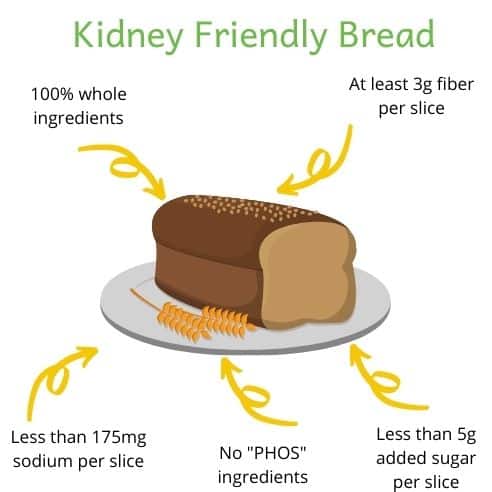
Whole Grain Ingredients
The marketing industry is really good at making bread look like it is good for you, when that may not be the case.
Look for ingredients that are “100% whole grain…”. Examples are:
- 100% whole grain wheat
- 100% whole grain rye
- 100% brown rice
Fiber
One of the biggest benefits of bread for kidney disease is fiber! Fiber can help control blood sugar, which in turn helps protect your kidneys. Fiber is also good for gut health. We are learning more and more about how the gut and kidneys are connected. (4)
I recommend looking for bread with at least 3 grams of fiber per slice.
Sodium
A low sodium diet is key to nearly any kidney-friendly diet. Most people should limit sodium to 2,300mg per day. (5)
Bread is a surprising source of sodium in the American diet. Up to 10% of the sodium we eat in the United States comes from bread. (6)
Look for bread with no more than around 175mg sodium per slice.
Phosphorus
Again, phosphorus that occurs naturally in whole grain bread is not a concern. However, some breads have phosphorus food additives in them. We DO care about this added phosphorus.
Avoid bread that has any “PHOS” ingredients in it.
Sugar
Some bread has a surprising amount of added sugar.
Watch out for sugar ingredients in bread. Remember, sugar is sugar. Here are some ingredients that are masquerading as sugar:
- Granulated sugar
- Cane sugar
- Brown sugar
- Molasses
- Honey
- High fructose corn syrup
- Beet sugar
- Syrups (like barley malt syrup or rice syrup)
- Agave
- Sucrose
- Maltose
- Dextrose
- Galactose
Aim for bread with no more than 5 grams of added sugar.
Top 3 Best Breads for Kidney Disease
Ezekiel Sprouted Whole Grain Bread*
This bread has 3 grams of fiber per slice and only 75mg of sodium. No phosphorus additives here!
Brownberry Whole Grain Health Nut Bread*
This brand is commonly available in grocery stores across the United States. Brownberry bread tends to be phosphate additive free and a good whole grain option.
Dave’s Killer Whole Grains & Seeds Bread*
If you love seeds and visible whole grains in your bread, this bread is for you! All of these nuts and seeds give this bread a whopping 5 grams of fiber per slice.
Is Sourdough Bread Good for Kidney Disease?
I get this question a lot. Sourdough bread is quite tasty, but isn’t necessarily good for kidney disease.
“Sourdough” refers to the process of making the bread, not the nutritional value. Rather than yeast, sourdough bread gets it’s rise from fermentation. This fermentation gives sourdough bread that slightly funky, sour flavor.
Typically, sourdough bread is made from white flour. It isn’t better for you than plain old white bread. As always, check the nutrition facts label to look for bread with plenty of fiber!
Is Rye Bread Good For Kidney Disease?
Another common question. Don’t be fooled by it’s dark color. Similar to sourdough, rye bread is not necessarily made with whole grain flour.
Most rye bread is made from rye flour that has had the fiber-containing parts of the kernel removed. This is the same process wheat goes through to make white flour.
However, you can find whole grain rye bread! Look for “whole grain rye flour” in the ingredients.
Other Healthy Carbohydrates for Kidney Disease
Remember, bread isn’t the only healthy carbohydrate for kidney disease! There are plenty of tasty options!
- Whole Grain Pasta
- Brown or Wild Rice
- Quinoa
- Farro
- Kamut
- Barley
- Wheat Berries
- Popcorn
- Oatmeal
- Fresh or frozen fruit
Happy Eating!
Melanie

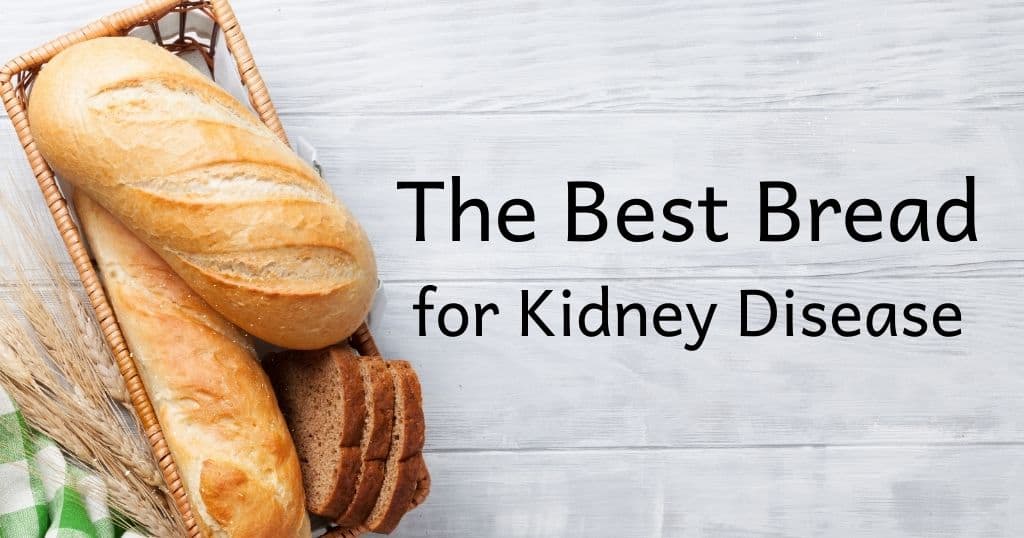
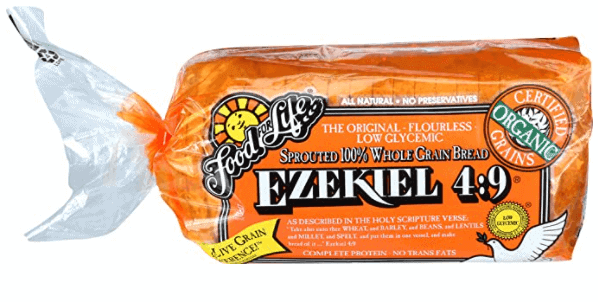
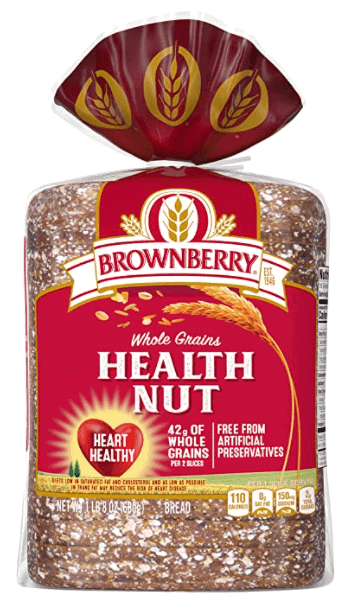
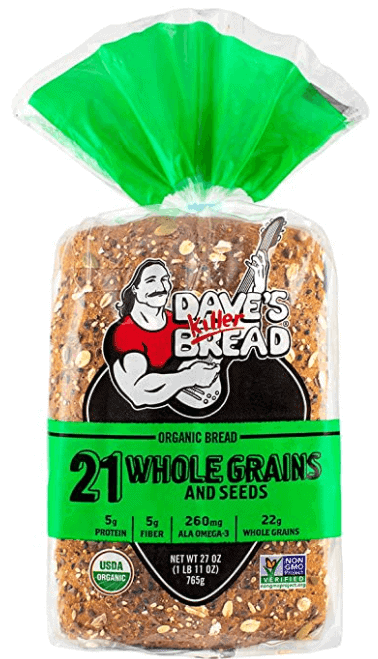

This is very interesting as I tend to eat Sour dough bread, as wheat seems to bother my allergies, what you suggest?
The goal is to find a brand that works for you that is lower in sodium without potassium or phosphorus additives for kidney disease. It is hard to make recommendations for you without knowing more about your preferences and medical history.
I was told white bread (for my husband with stage 3b) so I have been making my own. I even started my own sour dough starter and threw out my wheat flour and buckwheat flour. I am so confused. I make everything from scratch for him. I leech all of my vegies like carrots, potatoes etc. I have a friend who even mills her own flour and has offered to make us bread, but I was told the protein in other flours is too high. He is losing weight and on top of all this he has CLL (his treatment caused the CKD). I have canned my own veggies, only buy farm fresh meat, and bake all of his snacks. I use sour dough discard to reduce adding baking soda and powder. We need help? I need calories for him…I need a real recipe’s for normal food we live hours from the city to buy odd ingrediencies. We like Italian and comfort foods.
thanks Sue
Hi Susan. Thank you so much for your comment. I cannot stress enough how important it is for you and he to meet with a dietitian to figure all of this out – especially in light of his weight loss and CLL. Nutrition for kidneys is different for every single person – and ESPECIALLY with this weight loss, many of the generic recommendations may be wildly inappropriate for him. It also sounds like you’ve received some outdated advice – like white bread for CKD. This is no longer recommended as we understand the absorption of phosphorus from plant foods, like whole grains is minimal. I have a list of renal dietitians I recommend on my site if you’d like to check them out!
This is really a lot of great information. I got a dietetician at my HOA but can only talk to her to ask questions at appointments. The information flowing from here is remarkable. Count me in!
I’m so glad you are loving the site! Make sure to join my newsletter to get even MORE info!
Thank you for a very informative lists of breeds. I read that white bread was ok. Now that I know better. I feel enlighten to have good choices of the best 3 breads for CKD4.
Hi Melanie , this information on breads in CKD was very informative . I’m CKD stage 4.
God bless you !
I’m so glad this was helpful to you!
My questiobn was abur Raisin read or chronic kidney disease?
Sure! All foods are 100% ok for CKD. It is just about learning how to fit them into healthy meals and meal patterns specific to your labs and medical history. Working with a renal dietitian can help you do this!
Hi Melanie
I love the Dave’s Killer bread, thin sliced.
My question is, since it’s thin sliced. Can I eat 2 slices without compromising anything. I have diabetes and ckd as well.
And can I eat rolled oats with peanut butter for breakfast every day?
Than You.
Yum! I love Dave’s Killer Bread as well! I really can’t safely say what is best for you. It totally depends on your labs, other medical history and ALL the food you eat in a day. I’d highly recommend working with a dietitian to figure all of this out! I have a list of dietitians who work directly with patients for kidney disease on my website.
Hi Melanie, I’m a lover of bread but now I have to watch it being I have CKD. It had nothing to do with that though. I was wondering, what about the round Italian Bread ArtIsan style. Would this one be okay? Dr. Gundry says that whole grain is bad for our intestines. The hulls of the grain causes tears in our intestines and that is what causes Leaky Gut.
Hi Patricia! Whole grains are actually INCREDIBLY good for our intestinal health. Fiber is essential to keep our gut healthy. Neither hulls or ANY other part of the whole grain “tears our intestines”, this is completely false and there is NO data to suggest this is true. I recommend whole grains for everyone I’ve ever worked with.
What about pumpernickel bread?
Delicious! It depends on the specific nutritional profile of the particular pumpernickel bread you are eating.